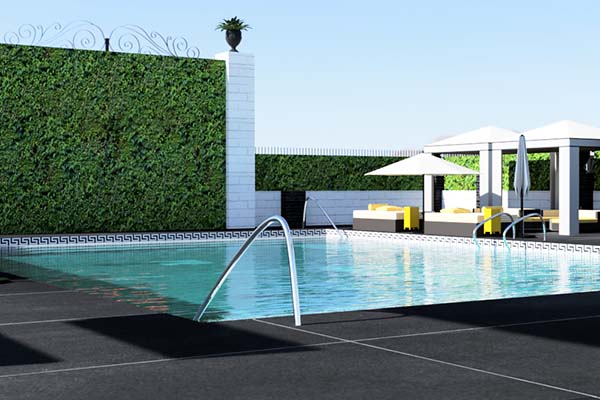Bees play a key role in Fairmont Hotels & Resorts’ environmental stewardship initiatives.
Acquired by Accor in 2016, Fairmont has been committed to proactively protecting local environments through its award-winning Fairmont Sustainability Program—now part of Accor’s Planet21 program—for three decades. Its approach to environmental sustainability combines leading operational efforts aimed at reducing overall impact on the planet with forward-thinking programs promoting responsible tourism.
Currently, Bee Sustainable programs at Fairmont locations worldwide have more than 20 honeybee apiaries and over 20 wild pollinator bee hotels. Here’s the buzz about bees at four properties in Canada.
Fairmont Waterfront (British Columbia)
Vancouver, B.C.’s Fairmont Waterfront partnered with Hives for Humanity to introduce mason bees to the hotel’s garden as part of the larger Pollinator Corridor Project, which aims to build up local bee populations across the city’s green spaces. Mason bees are super pollinators that live in tiny tubes. While they don’t produce honey, they are an integral part of the ecosystem. In addition to the Pollinator Corridor Project, the hotel’s partnership with Hives for Humanity has allowed for the creation of Bee Space—a permanent and covered location that allows Hives for Humanity to continue their community program throughout the winter months.
Fairmont Waterfront was the first Fairmont to host bees in its rooftop garden—the “Bee & Bee” Pollinator hotel. The property went virtual with its bee video series: Fairmont Waterfront’s Buzz on Bees. The Fairmont Waterfront also has a “bee team” who do daily tours in the summer months. The property’s “bee butler” is shown above.
Fairmont Chateau Whistler (British Columbia)
Fairmont Chateau Whistler has partnered with Pollinator Partnership, a leader in the protection and promotion of pollinators and their ecosystems for more than 20 years. This summer the property will be a hive of activity with Chef Isabel Chung’s edible garden in bloom, a Bee & B Hotel welcoming weary travelers, and an outdoor pop-up restaurant serving a locally-inspired BBQ menu. The Wild Bees help pollinate the garden that supplies fresh herbs and flowers for hotel menus and cocktails. After a hard day of pollinating, the busy bees can retreat to the hotel’s bee sanctuary for food, hydration and safe lodging. Guests can take a self-guided tour of the gardens and Bee hotel aided by educational signage.
Fairmont Le Château Montebello (Quebec)
Located in the heart of Quebec woodlands, Fairmont Le Château Montebello has worked with the David Suzuki Foundation to plant milkweed plants for Monarch Butterflies to pollinate, and with the local elementary school to create a butterfly garden with nourishing flowers and educational signage. The hotel has also partnered with Kenauk Nature to set up two honey bee apiaries that support the important process of pollination. Kenauk Nature’s beekeeper carefully tends to the apiaries throughout the season, making sure all 130,000 bees remain happy and healthy. Once the honey is harvested, the hotel’s chefs incorporate the honey in different recipes and desserts.
Fairmont Le Château Frontenac (Quebec)
Recognizing the critical role bees play in pollination and food supply, Quebec City’s Fairmont Le Château Frontenac installed honeybee apiaries on its roof. The hotel’s four beehives welcome 70,000 bees, which produce up to 650 pounds of honey per year. Harvested twice a year, the honey is used in the hotel’s kitchens, as well as in its cocktails. In order to improve the environmental sustainability of its daily operations, Fairmont Le Château Frontenac is also proud to be the first historic hotel in Canada to achieve carbon neutrality in 2020, thanks to a partnership with Laval University.














